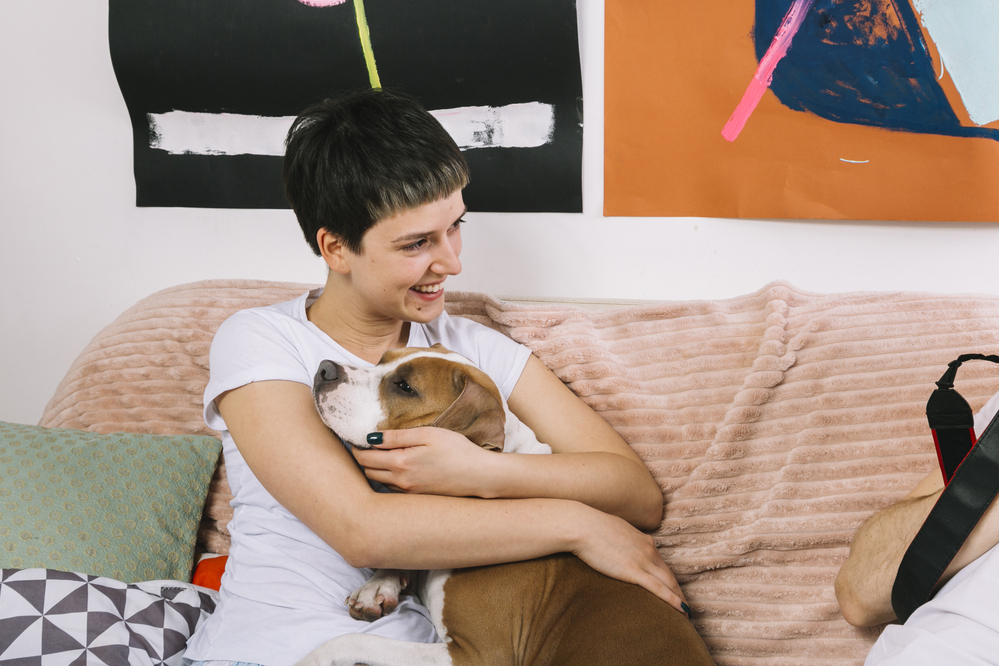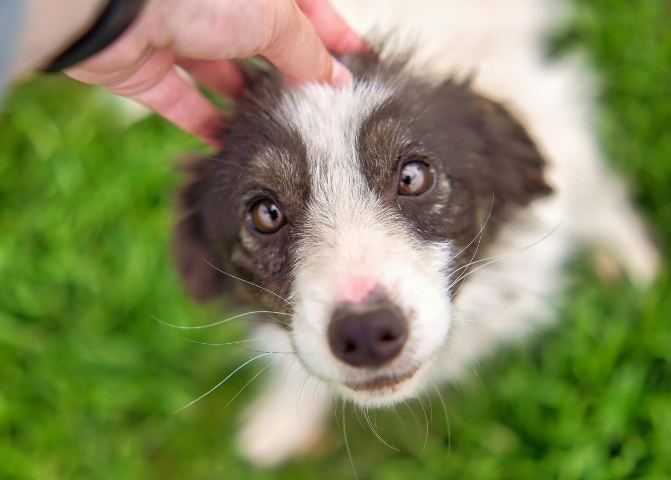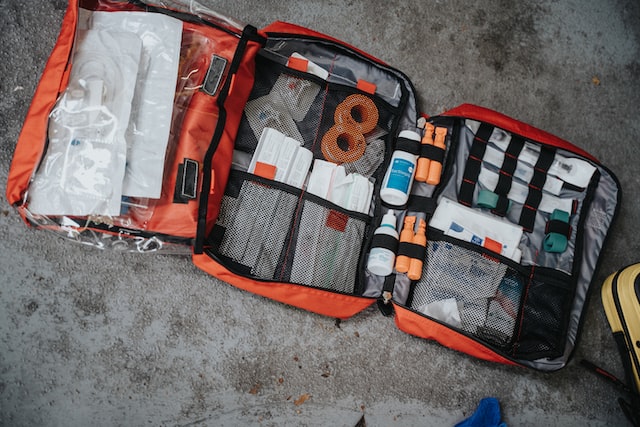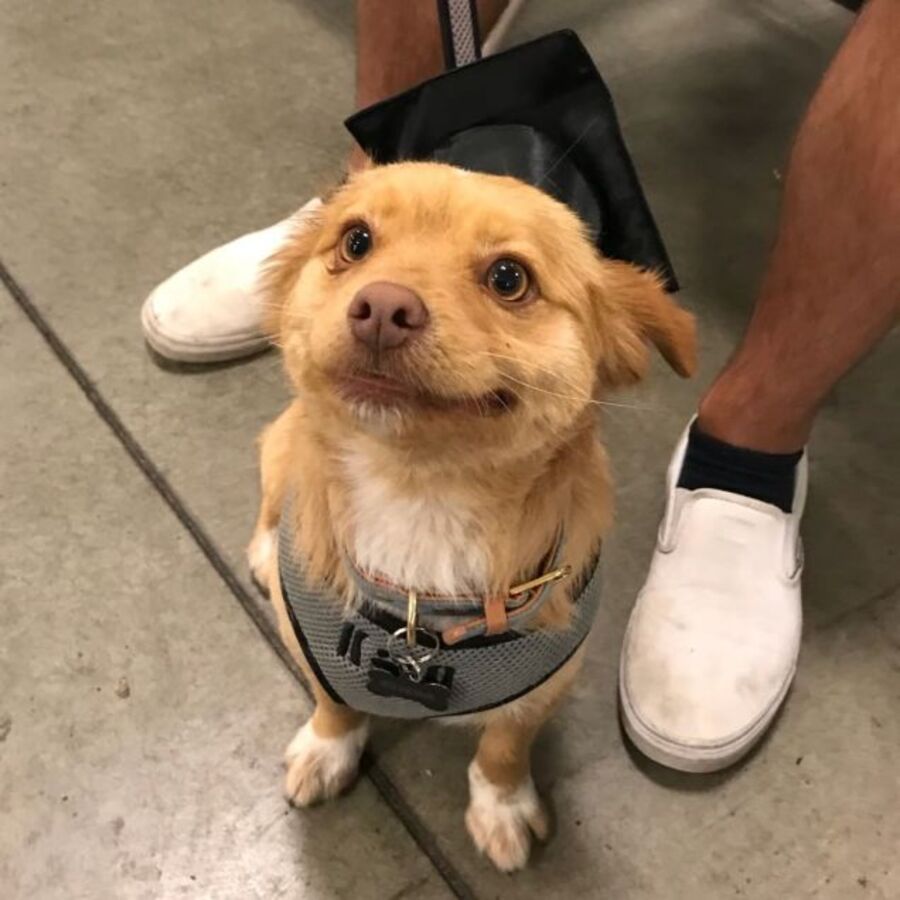
Service dogs are important for people with physical and/or mental disabilities to lead a full life, by actively engaging in various activities and find joy in all aspects of life. One of the most important aspects of person’s life is education. It provides us with many opportunities, that we expect to be beneficial for our future, and brings a feeling of confidence in us, when going on the job market.
Service dog-related topics that tend to be discussed quite often have to do with service dog access to grocery stores, restaurants, hospitals, nursing homes and on airplanes. This is perfectly normal, as people with a disability want to ensure that their service dogs will be granted access to every place they visit. Important types of facilities that disabled people may want to visit with their dogs are schools and universities.
In today’s article we will talk about service dogs’ access to school premises, difficulties that may occur and also will give you some helpful tips that you may want to apply when accompanied by your service dog at school.
What Are Service Dogs
Before we go straight to the topic, we need to clarify the definition of the term “service animals”. Service animals in the US are subject to the Americans with Disabilities Act (ADA) regulations and ADA defines a service animal as a “dog that has been individually trained to do work or perform tasks for an individual with a disability. The task(s) performed by the dog must be directly related to the person's disability.” Considering this definition we can make a clear difference between service animals and Emotional Support Animals (ESA). While the first ones are trained to perform specific tasks, based on their owner’s disability, the second ones provide comfort, but do not perform specific tasks. Service animals are considered a medical equipment for disabled people and thus are allowed to accompany them everywhere. A service animal may be denied access only if they “poses a direct threat to the health or safety of others, has a history of such behavior, or is not under the control of the handler, that animal may be excluded.” Also, they may be denied access to premises that require full sterility like surgery rooms or premises for food preparation. Certain zoo areas may also be part of the places with restricted accessibility to service dogs.
What Laws Apply to Service Dogs Accompanying Their Owners at School
As we stated above the Americans with Disabilities Act regulate the status of service dogs in the US.
1. ADA Regulations
We will quote parts of Title II and Title III of the Act:
Title II: “Title II of the ADA prohibits discrimination against qualified individuals with disabilities in all programs, activities, and services of public entities. It applies to all state and local governments, their departments and agencies, and any other instrumentalities or special purpose districts of state, or local governments”.
Title III: “This title prohibits private places of public accommodation from discriminating against individuals with disabilities. Examples of public accommodations include privately-owned, leased or operated facilities like hotels, restaurants, retail merchants, doctor’s offices, golf courses, private schools, day care centers, health clubs, sports stadiums, movie theaters, and so on. This title sets the minimum standards for accessibility for alterations and new construction of facilities”
2. Rehabilitation Act of 1973
“Section 504 of the 1973 Rehabilitation Act was the first disability civil rights law to be enacted in the United States. It prohibits discrimination against people with disabilities in programs that receive federal financial assistance, and set the stage for enactment of the Americans with Disabilities Act. Section 504 works together with the ADA and IDEA to protect children and adults with disabilities from exclusion, and unequal treatment in schools, jobs and the community.”
3. The Fair Housing Act
“Under the FHA, a disability is defined as a physical or mental impairment which significantly limits a person’s major life activities. Even if a lease says "no pets" or restricts pets, landlords are required to make what is called a “reasonable accommodation” to allow pets who serve as assistance animals, which includes animals who provide emotional support.” “Service animals are allowed in public accommodations because of the owner’s need for the animal at all time”.
Considering the information listed above, we can say that students are allowed to bring their service dogs into K-12 grade public school campuses and universities. Handler-service dog teams must be treated equally and fees may not be charged due to the presence of the service animal.
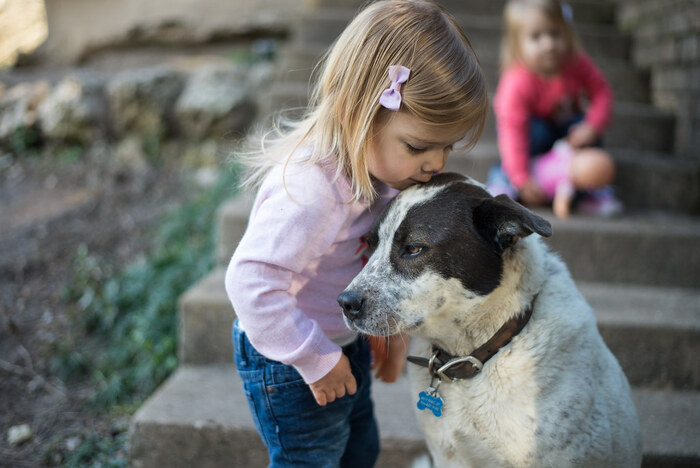
Service Dogs As Part of the Educational Process
Service dogs play a crucial role in the lives of students with disabilities and the general public should be aware of it.
Students with physical disabilities can benefit from service dogs, who provide mobility tasks, i.e. they can bring or hold school supplies, open and close doors, windows, pull a wheelchair, help students keep balance when moving in and out the classroom.
Service dogs can alert students about an oncoming episode and remind them to take their medication.
When coping with a mental disability like anxiety, depression, PTSD...etc., students may find it very difficult to focus on the learning materials and study effectively. Through techniques like tactile stimulation or Deep Pressure Therapy, Psychiatric Service Dogs are able to mitigate the symptoms of these health conditions and contribute to the efficiency of the learning process. We also would like to note, that people suffering from panic attacks, may be unable to cope even with simple situations when surrounded my a lot of people. Service dogs can calm their handlers down and guide them to a safe place within or outside the premise if a panic attack occurs.
Too High Expectations and Problems that May Occur
Handler-Related Issues
There are no strict age limitations for a person to be a service dog handler. Some states may require the handler the be at least 12 years old, others- 14 or 18 years old. However, regardless of the exact age, we all can agree that a child with a disability will be required to keep their service dog under control while at school. Many students feel stressed and overwhelmed at school. For a student with a disability, who is trying to adapt to the process and be as effective at studying as others, it may be overwhelming to take responsibility for a service animal at school. The child may be unable to take care of the service dog properly, which may lead to more problems than solutions. A service dog may not only become ineffective but also turn into another stress provoking factor. In general, we can say that the student should have the skills (cognitive, mental) to control the dog and take care of them effectively.
Dog-Related Issues
Service dogs must have gone through comprehensive training and be able to perform various obedience and social tasks. They must stay focused on their handlers, regardless of the environment and the number of people or other animals nearby. Prior to bringing a service dog in the school premise, you should be really confident at the dog’s skills. Even a well-trained service dog may find it difficult to stay focused and quiet for many consecutive hours. Dogs must be walked outside the premise for potty breaks on a regular basis. How often you will need to walk your dog outside, depends on his/her age and house training. The younger a dog is, the more often they will need to go outside to relieve themselves (every 2-3 hours for young puppies). Adult dogs need to go outside every 6-8 hours. Proper house-training will help you make a schedule that your dog will get used to. Once your dog learns to follow a schedule, it would be much easier for you to regulate his/her habits.
Teacher/Principal-Related Issues
Some teachers are not likely to be enthusiastic about the presence of an animal in the class room. A dog in the classroom may lead to distraction among the other students that will have to be managed by the teacher. Also, teachers may feel responsible for the supervision of the service dog (or may be made responsible), which will add to their tasks (teaching students, taking care of the discipline, working on all documentation related to the learning process...etc.) one more thing to handle. If there are students, who are afraid / allergic to dogs, teachers/principals should manage the process in a way that ensures that the rights of all students are respected. Sometimes this may be a difficult task, especially due to the lack of uniform service dog regulations. Unfortunately there are still many gray areas and a wide scope of interpretation.
Other Students-Related Issues
Other students may want to pet the service animal and start asking various questions related to handler’s disability and their need of the animal. This may cause troubles for two reasons: it may distract the service animal and worsen their performance; interactions and comments by other students can make the handler feel even more anxious and stressed. Unfortunately there are many people, who still do not understand the importance of service animals and are not considerate around them. If a lot of adults still can not figure out how to behave properly towards handler-dog teams, what can we expect from children?
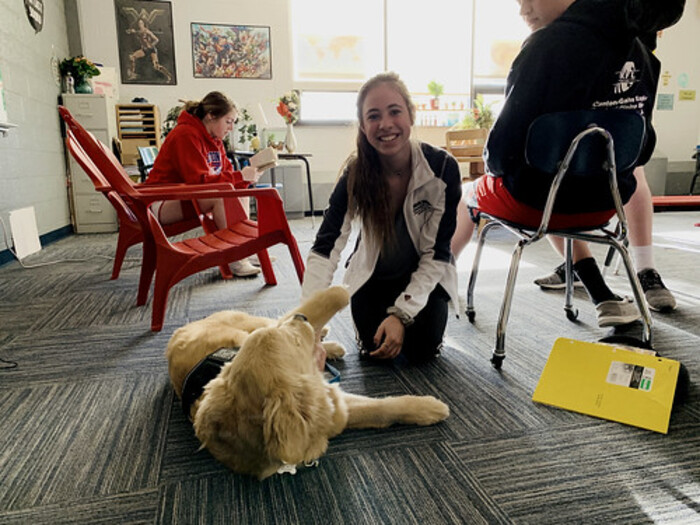
What You May Need to Consider Prior to Bringing a Service Dog at School
Get Informed
We would recommend that you gather as much information as possible about your rights and responsibilities as a dog handler. Be familiar with your dog’s body language and needs. Try to develop a strong bond with your paw friend and conduct profound training in order to make sure that he/she will pick up on your symptoms.
Take Care of Your Service Dog
Never forget to walk your service dog for potty break and provide them quality time to play, rest and relax. Although service animals are deemed medical equipment, they are living creatures with own needs- physical and emotional.
The next point is logically connected to the previous one.
Prepare All the Necessary Equipment
In order to take care of your dog (and yourself) and you should have prepared all the necessary equipment. This may include service dog gear such as a harness/vest/leash/collar, food, including your paw friend’s favorite treats, bowl of water, and poop bags.
Contact Disability Services Office
We highly recommend that you contact your school’s/university’s disability services office. They will provide you with all necessary information and devices to help you navigate in the facility. You are likely to be provided with a letter of accommodation that affirms the presence of a service animal in the school. You should hand out this letter to your teacher so that they can be aware of the situation and provide you with all the support you need.
Go to School Earlier
In order to give this letter to your teacher you may want to go to school earlier, to ensure that you will have enough time to clear all the details with them. Also, you will be able to pick a seat where you and your dog will feel most comfortable. You may want to choose a spot that gives your paw friend enough space to lie down without disturbing other students or interfering with the access to the aisle.
Service dogs become a vital part of a lot of people’s lives worldwide. They can be trained to perform different tasks, based on the handler’s needs and regardless of the place and situation, they should be treated respectfully.






